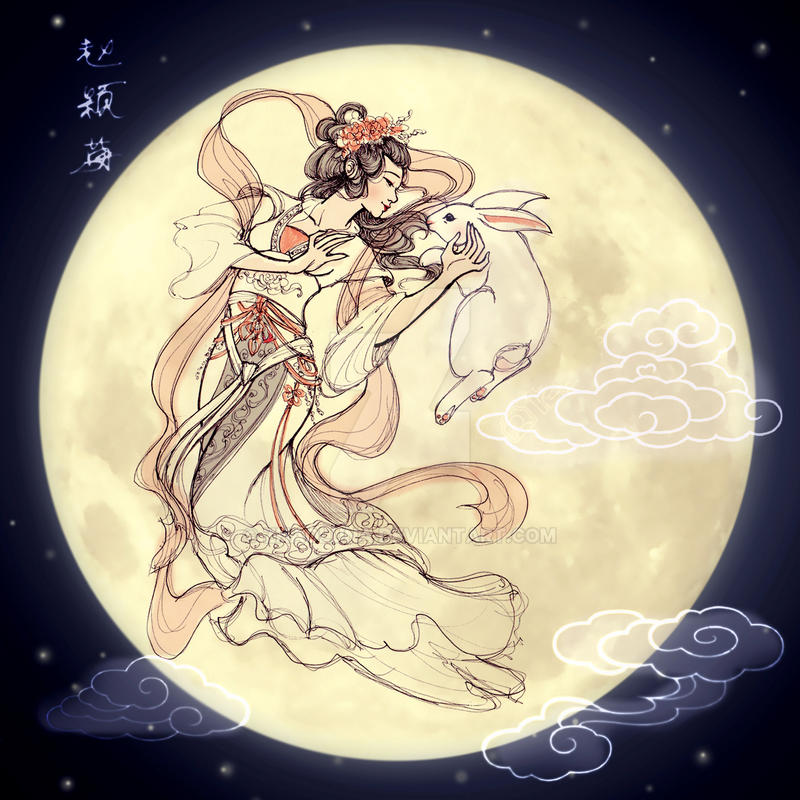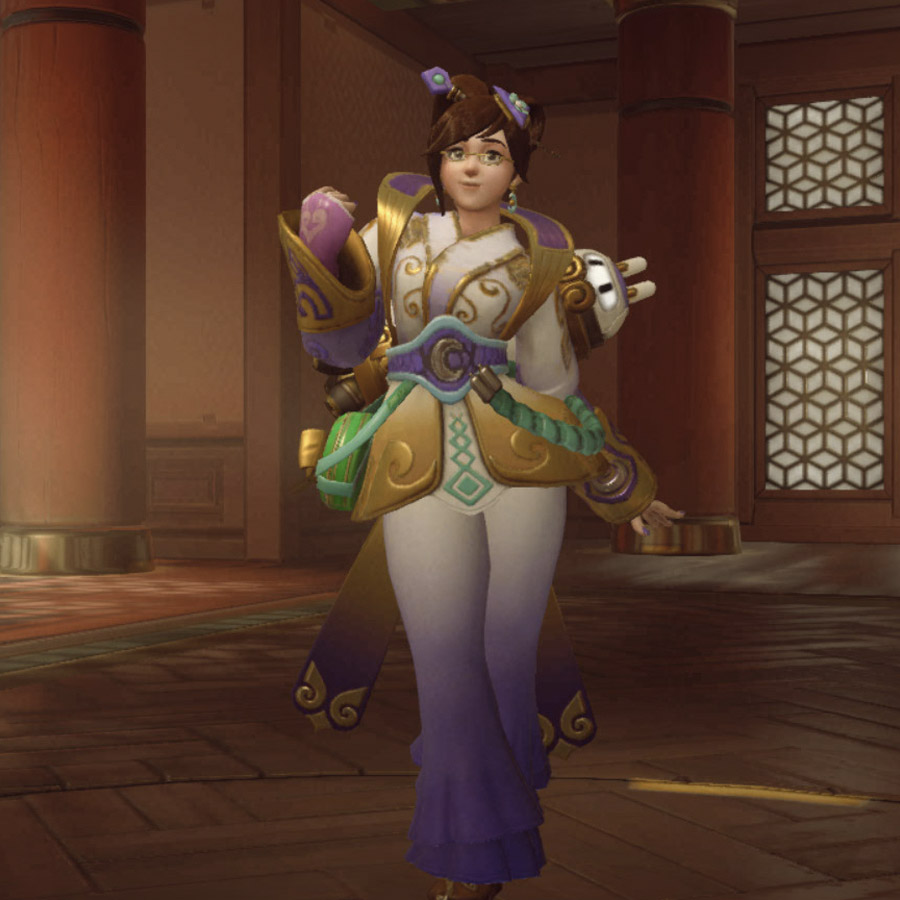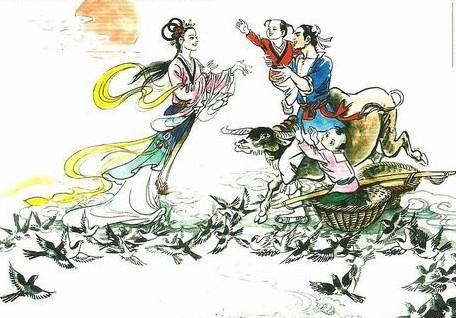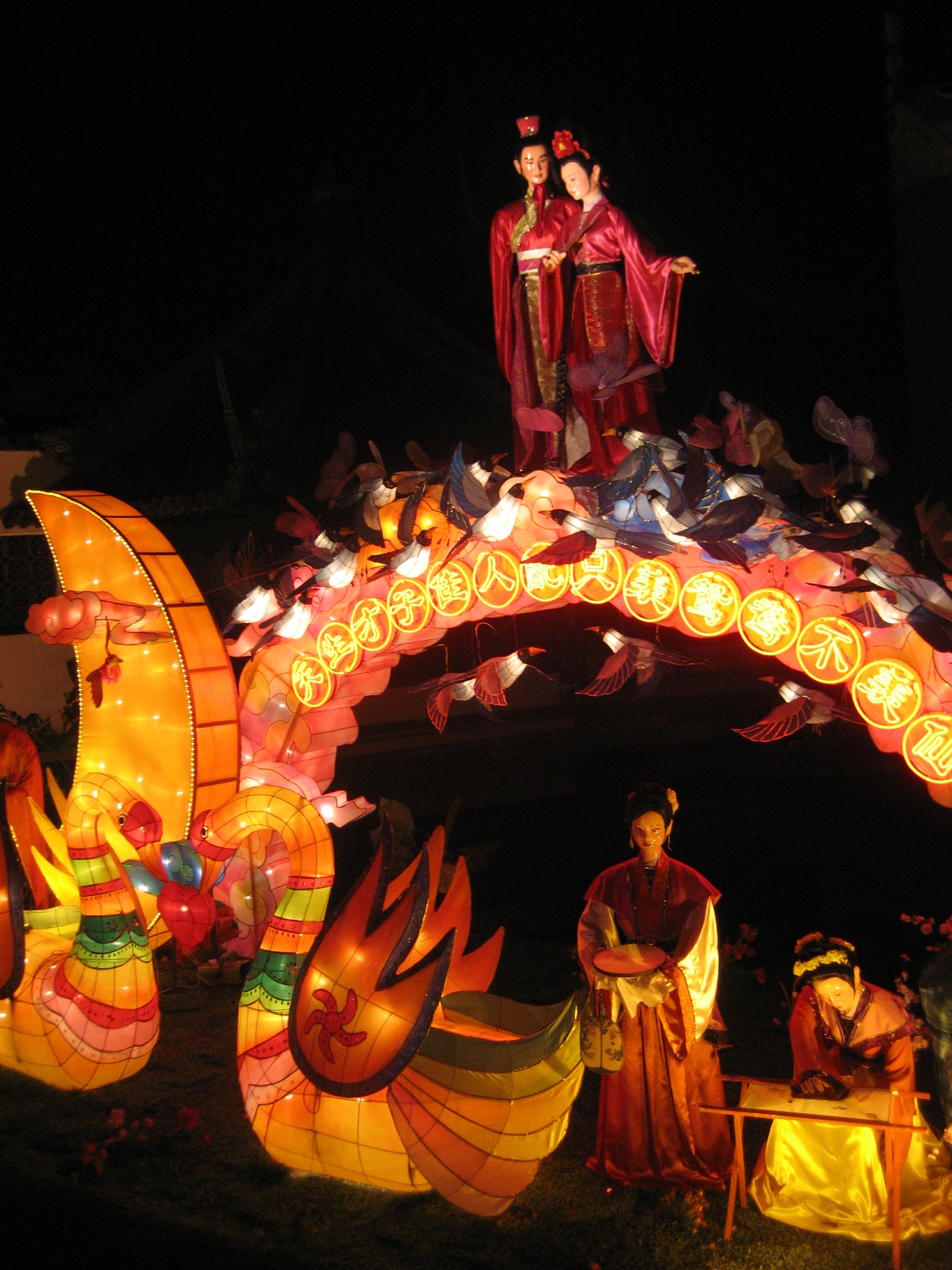So far in my series of Chinese posts we've looked more at folklore than at mythology. Because of that, today's post is going to focus on a myth from an early period of Chinese history.
Heaven in
Chinese mythology is a dwelling place for not only the gods, but for
immortals and spirits as well. One of these immortals, Houyi, would
be called upon to save the world from a most unusual calamity.
Either the Jade Emperor or another god (depending on which version of
the story you read) had ten sons. One day these sons decided to
transform themselves into ten suns.
Now, I live in Arizona. One sun already provides more than enough
heat, thank you very much – and I don't even live in the hottest
place on earth! Twice the heat would be unbearable, but ten
times?
It
didn't take long for the suns to begin to effect the earth. Plants
withered and died. Lakes and rivers began to evaporate. The ground
scorched, and people began to die.
The
Jade Emperor knew that something had to be done, and so he called an
immortal to aid him. This immortal was Houyi, and he was renowned
for his skill in archery. The Emperor tasked Houyi with stopping the
ten sons/suns, and saving the world.
Unfortunately,
he was a little bit unspecific in how
Houyi was to stop them.
The
immortal archer descended to earth and began to do what he did best.
He knocked an arrow to his bow, took aim, and fired. Whoosh!
One sun fell from the sky, dead. Houyi drew another arrow. Another
sun fell.
He repeated this process until only one sun was left in
the sky. (According to some versions of the tale, someone saw that
Houyi had no intentions of ceasing fire and so snuck up behind him to
remove an arrow from his quiver, leaving him with only enough to take
down nine of the suns.) After all, one sun is necessary for both
warmth and for light.
Houyi
returned to heaven, expecting to be thanked for having saved the
world. Instead, he found himself facing punishment.
The
father of the sons/suns had not expected the archer to kill
his children. He was horrified, and grew wrathful in his rage. As
punishment, Houyi was stripped of his immortality. The archer was
not to bear this punishment alone – his wife, Chang'e, was also
made mortal. Then the two were banished to earth.
Life
on earth was hard for the couple. Houyi was particularly grieved by
how difficult it was for his beautiful wife. Chang'e was used to the
luxuries of heaven, not the hardships of earth. More than anything,
he wanted to return her to her rightful place as an immortal.
Luckily,
Houyi had heard of an elixir which could do just that – one made
from the peaches of immortality (which we'll discuss more when I do
my post on the Monkey King). This elixir was kept by an immortal
named the Queen Mother of the West, who resided on earth on Mount
Kunlun.
Houyi
set out to find the Queen Mother and to beg the elixir from her. He
successfully made his way to her palace and presented his case to the
Queen Mother. She was sympathetic, and offered him the elixir of
immortality. However, she also gave him a warning. There was just
enough elixir that he and Chang'e could split it, granting both
immortality – but they would be forced to live on earth, never
returning to heaven. If one person drank the entire elixir, then
they could have eternal life in heaven once again.
Houyi
thanked her and returned home with the elixir. He was a good
husband, and was not even tempted to drink the elixir all by himself.
Sharing it with Chang'e would allow both to live forever, and that
was enough for him.
Now,
depending on which version of the story you read, Chang'e's next
actions vary. In some cases Houyi did not tell her about the elixir
before he was called away from the house. She found it in her
curiosity, and drank the entire thing, not knowing that none would be
left for her husband. In other versions of the story, Houyi told
Chang'e everything. Not content with immortal life if she must live
it on earth, Chang'e drank the entire elixir, wishing to be returned
to the splendor of heaven...even if it means going without her husband.
In
either case, the results are the same. After drinking the elixir,
Chang'e's body grew light and airy. She began to float through the
air, literally rising into the heavens. Yet Chang'e and Houyi had
been banished from heaven due to the wrath of a mighty god. She
could not return there. With nowhere else to go, Chang'e floated to
the surface of the moon, and that is where she has made her home ever
since. She isn't alone up there - there's also a rabbit who lives on the moon.
A couple of fun facts before I finish this post:
In
some versions of the story, Chang'e was transformed into a toad as
punishment for her actions.
The Mid-Autumn Festival in China sees offerings laid out to the moon. This story is very important to that festival.
Two
probes and a rover sent to the moon by China have all been named
after Chang'e.
There
is a white and purple variant on the Chinese New Year skin for Mei in
Overwatch named after Chang'e.
I
hope you guys enjoyed the story! I'll see you next week!














